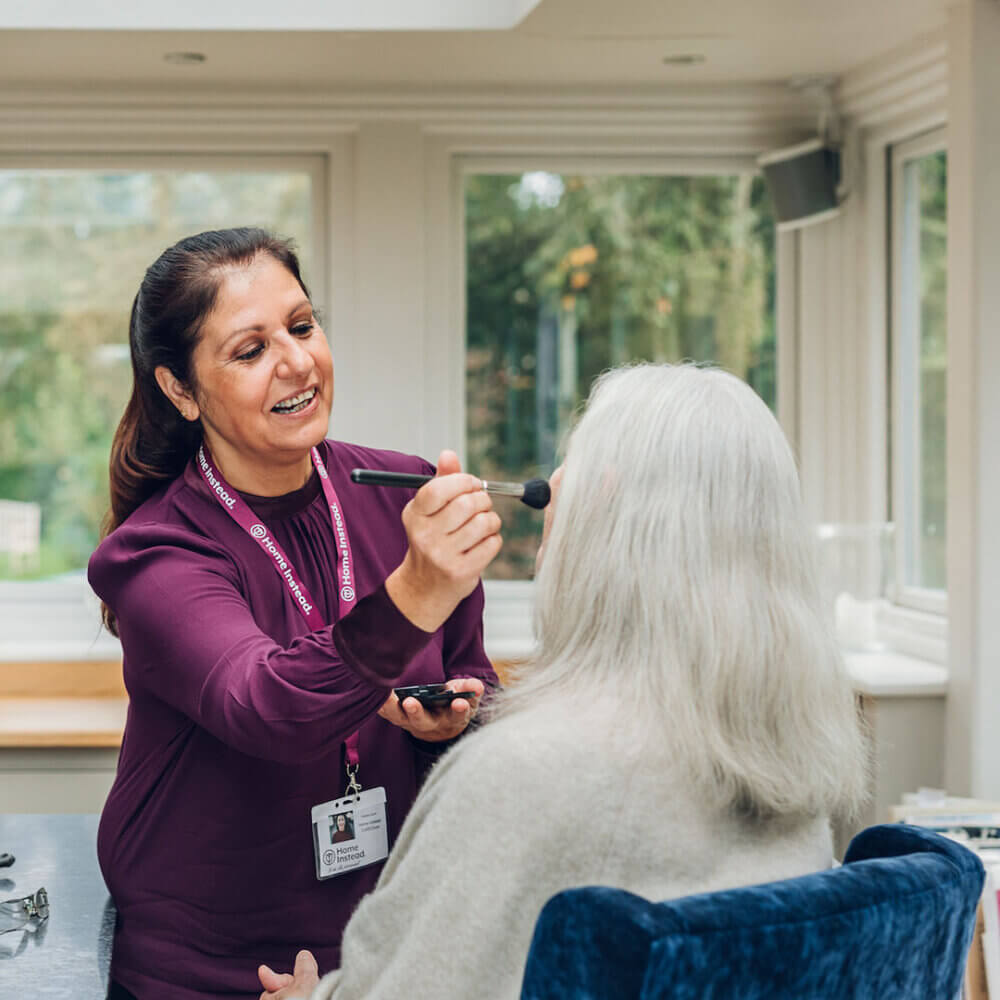Understanding Dementia Care Services in Southampton
Dementia care choices can often seem like a complex labyrinth, filled with medical jargon, varying costs, and a plethora of service options.

Introduction: Simplifying the Complexity of Dementia Care Choices
Dementia care choices can often seem like a complex labyrinth, filled with medical jargon, varying costs, and a plethora of service options. It’s not just about finding a service; it’s about finding the right type of service that aligns with the unique needs of the individual suffering from dementia. The emotional weight of the decision can make it all the more complicated, raising questions about quality of life, comfort, and even the preservation of dignity.
This comprehensive guide aims to simplify this intricate landscape for you. By breaking down the various types of dementia care services available in Southampton, we offer you a navigational tool tailored to your specific circumstances. Whether you’re considering in-home care, specialised facilities, or day-care centres, this guide will equip you with the essential information you need to make well-informed, confident decisions. Our goal is to demystify the options and shed light on the best paths for care, allowing you to select the most suitable solution for your loved one’s condition, lifestyle, and personal preferences.

The Landscape of Dementia Care in Southampton
Why Dementia Care is Important: Beyond Medical Needs
The need for specialised dementia care extends far beyond simply addressing medical requirements. Dementia presents a myriad of challenges that transcend the clinical realm. For starters, individuals with dementia often experience emotional and psychological fluctuations that can affect their general disposition, temperament, and even their relationships with family and friends. In addition, behavioural changes often occur, making it crucial for care providers to adapt and provide nuanced support.
Quality specialised dementia care goes beyond medical treatments to focus on a holistic approach. It aims to preserve and even enhance the overall quality of life for the person living with dementia. This includes measures to help them remain socially active, mentally engaged, and emotionally balanced, thereby offering much-needed respite and support for families and caregivers.
Understanding the Demand: Southampton’s Ageing Population
In Southampton, the demographic landscape is changing. An increasingly ageing population has led to a surge in the demand for specialised dementia services. This growing demand places an immense strain on existing healthcare infrastructure, making it vital for families to plan ahead.
The community’s needs for dementia care are vast, and the available services can vary in quality. As resources are stretched thin, families often find themselves faced with long waiting lists, less-than-ideal service options, and sometimes even the need to look beyond Southampton for suitable care. This makes the task of finding a reliable, high-quality dementia care service not just urgent but critical. It is a complex decision that requires comprehensive understanding, timely planning, and an awareness of the unique challenges associated with dementia care.

Types of Dementia Care Services: A Closer Look
In-Home Dementia Care: Comfort and Familiarity
In-home or dementia home care is often the first choice for families looking to maintain a sense of normalcy for their loved ones. This personalised option allows the individual to stay in their familiar environment, which can be incredibly comforting and beneficial for someone dealing with dementia. Familiarity often equates to a sense of security and a lower level of anxiety, two factors highly important in dementia care.
The approach focuses on minimal disruptions. Personalised care plans are developed, detailing everything from meal timings to medication schedules, in order to maintain a consistent routine for the individual. This form of care isn’t just about physical well-being; it also covers social interactions and mental stimulation within the comfortable confines of home.
Dementia Care Facilities: Specialised and Secure
Unlike general care homes, specialised dementia care facilities in Southampton offer a more targeted approach to dementia care. These establishments are equipped with state-of-the-art technology and specially trained staff to manage the complex medical and safety requirements that dementia patients often require.
But medical care is just one aspect. These facilities also offer structured activities designed to engage the mind and help with cognitive function. Whether it’s art therapy or music sessions, the focus is on a holistic treatment plan that covers emotional, psychological, and physical health. These facilities are often an ideal choice when home care is no longer viable due to the advanced stages of dementia or other medical complications.
Day Care Centres: A Respite for Caregivers
The role of a caregiver is demanding and often emotionally draining. Day care centres provide an avenue for respite, not just for caregivers but also for the individuals suffering from dementia. These centres are not merely holding areas; they offer a structured day filled with activities designed to maintain or even improve mental and emotional well-being.
Whether it’s group activities, one-on-one sessions, or simple social interactions, the focus is on keeping the individual engaged. Alongside these activities, many centres also offer educational sessions aimed at helping families and caregivers better understand the intricacies of dementia care. These institutions offer the dual benefit of giving caregivers some downtime while ensuring that their loved ones are in a safe and stimulating environment.

What Sets Home Instead Southampton Apart
Customised Care Plans: Tailored for Individual Needs
When it comes to dementia care, a one-size-fits-all approach is not just ineffective—it can be detrimental. At Home Instead Southampton, we fully understand that each individual’s journey through dementia is unique, complete with its own set of challenges, triggers, and coping mechanisms. Therefore, we place a significant emphasis on creating customised care plans that are finely tuned to meet these individual needs.
Our process begins with an in-depth assessment, not only of the medical needs but also the lifestyle, daily routine, and even the likes and dislikes of the individual. The aim is to craft a care plan that seamlessly integrates into the person’s life, causing the least amount of disruption while providing the maximum amount of support. We look at aspects such as dietary preferences, sleep patterns, medical history, and even specific behavioural triggers to create a roadmap for care that is as comprehensive as it is individualised.
Experienced Care Professionals: A Team You Can Trust
Expertise in dementia care is non-negotiable, and at Home Instead Southampton, we take this incredibly seriously. Our team of caregivers, known as Care Professionals, undergo rigorous, ongoing training programmes designed to equip them with the most up-to-date knowledge and practical skills required for high-quality dementia care.
But expertise isn’t our only focus. The cornerstone of our care philosophy is a genuine human connection. Our Care Professionals are selected not just for their technical skills but also for their natural qualities of empathy, patience, and understanding. They are trained to approach each situation with sensitivity, recognising that they are not just dealing with a medical condition but a person who has their own emotions, thoughts, and dignity.
Our team knows how to navigate the complexities that dementia introduces into daily living. From managing challenging behaviours to providing emotional support, our Care Professionals offer not just expert care but a compassionate companionship that can significantly improve the quality of life for both the individual and their family.

FAQs: Answering Your Concerns
Navigating dementia care can be fraught with questions and uncertainties. To help you get the clarity you need, we’ve compiled answers to some of the most frequently searched questions on Google about dementia care services in Southampton.
What is the cost of dementia care services?
The cost of dementia care can vary significantly depending on the type and extent of care required. In-home care is often charged by the hour and could range quite drastically depending on the company, their specialties and how long they charge per hour. Specialised dementia care facilities may have costs starting from over £1900 per week, but this can rise based on the level of care needed.
Are there any funding options available for dementia care?
Yes, there are several funding options available, including local authority funding and NHS Continuing Healthcare for those who meet certain criteria. Additionally, Attendance Allowance and Personal Independence Payment (PIP) can also be explored.
How do I choose between in-home care and a specialised facility?
Choosing between in-home care and a specialised facility depends on several factors, including the stage of dementia, the patient’s medical needs, and family circumstances. In-home care is usually ideal for early-stage dementia, where the individual can safely live at home. Specialised facilities become a more appropriate option as the condition progresses and the individual requires more intensive care.
How do I assess the quality of a dementia care service?
Quality of care is critical, and you should look for services with well-trained staff, customised care plans, and strong testimonials. Also, consider seeking recommendations from healthcare professionals and visiting the facility or meeting the care team to get a first-hand experience.
What activities are beneficial for someone with dementia?
Activities that engage both the mind and the body are beneficial. This can include simple tasks like gardening, painting, and cooking, or more structured activities like music therapy and cognitive exercises. Always consult the care team for tailored recommendations.
Is medication necessary for dementia treatment?
Medication can be a part of dementia care, but it is usually just one component of a comprehensive care plan that includes psychological, social, and physical support.
What qualifications do caregivers at Home Instead Southampton have?
Our Care Professionals undergo rigorous training in dementia care and are updated on the latest care methodologies. We also require our staff to have background checks and references to ensure you can fully trust the care provided.

Conclusion: Navigating the Path to Quality Dementia Care
Selecting the appropriate form of dementia care is not a task to be taken lightly; it’s a pivotal decision that has lasting implications on the well-being of both the person with dementia and their loved ones. Navigating this complex landscape may feel overwhelming, but remember that knowledge is your most powerful tool. By educating yourself on the nuances of different care options, understanding their pros and cons, and considering how they align with your specific needs, you’ll be in a better position to make an informed choice.
Also, you’re not alone in this journey. Support from healthcare professionals, caregivers, and even social workers can provide invaluable insights. Engaging with them early on can help you chart a course that not only meets medical necessities but also respects the dignity, comfort, and emotional well-being of everyone involved. Making the right choice in dementia care means providing a happier, more stable life for the person with dementia, whilst also offering a much-needed support structure for their family.

Contact Us for Comprehensive Dementia Care Solutions
Still have questions? Need more personalised guidance? You don’t have to sift through this challenging process alone. The team at Home Instead Southampton is here to assist you every step of the way. From initial assessments and customised care plans to delivering high-quality care, we provide a holistic approach to dementia care that addresses not just medical needs but also the emotional and psychological aspects of the condition.
How to Reach Us
Phone: You can reach us at 01489 345879 for immediate assistance.
Email: For less urgent enquiries, feel free to email us at [email protected]
Office Visit: You’re also welcome to visit our Home Instead office for an in-person discussion.
14 Little Park Farm Rd, Segensworth Roundabout, Fareham PO15 5TD, UK
By reaching out to us, you’re taking the first step towards a comprehensive, empathetic care solution tailored specifically to your situation. Let us help you navigate the complexities of dementia care; you’ll discover why so many families in Southampton trust us to care for their loved ones.
To discuss your unique needs and find out how we can make a tangible difference in your life and the life of your loved one, contact Home Instead Southampton today.
